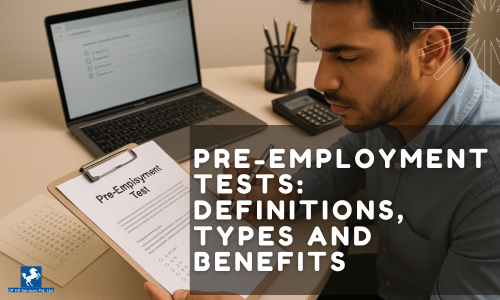Top 10 Skills for Students Entering Before the Corporate World

Remember that sinking feeling when your senior asked, “So, what skills for corporate world students should you actually have beyond your degree?” You’re not alone if this question kept you up at night. Most Indian students spend years mastering textbooks but graduate feeling unprepared for actual workplace demands. The gap between college curriculum and corporate expectations has never been wider. Here’s the reality: Technical skills for entry-level jobs matter, but they’re just the foundation. Today’s employers want well-rounded professionals who can hit the ground running from day one. This comprehensive guide reveals the top 10 essential skills that will transform you from a nervous fresher into a confident corporate professional. The Corporate Skills Reality Check: What Employers Actually Want Let’s address the elephant in the room. Indian companies receive thousands of applications for every entry-level position. What separates hired candidates from rejected ones isn’t always the highest GPA. Leading HR consultancies report that businesses now prioritize hiring candidates with strong soft skills alongside technical competencies, focusing on long-term potential rather than just academic performance. With expert HR consulting services in Pune, organizations can refine their recruitment strategies to identify well-rounded talent that drives sustainable growth. Here’s what makes the difference: Must-Have Corporate Skills for Freshers: The Complete Top 10 List 1. Business Communication Essentials: Your Gateway to Professional Success Think communication means speaking good English? Think again. Corporate communication involves: Real-world example: Priya, a computer science graduate, landed her dream job at a Mumbai-based fintech not because of her coding skills, but because she could explain technical concepts to non-technical stakeholders during her interview. Pro tip: Practice explaining your engineering project to your grandmother. If she understands it, you’ve mastered business communication. 2. AI Literacy for Corporate Jobs: The New Must-Have Skill Artificial Intelligence isn’t replacing humans it’s amplifying human capabilities. Essential AI literacy includes: Industry reality: Companies now expect entry-level employees to leverage AI tools effectively, regardless of their department. 3. Data Fluency for Non-Tech Roles: Numbers Tell Stories You don’t need to be a data scientist to work with data. Basic data fluency means: Career impact: Marketing, HR, finance, and operations roles now require basic data interpretation skills for decision-making. 4. Digital Productivity Tools Mastery: Work Smarter, Not Harder The modern workplace runs on digital tools. Essential tool categories: Internship skills that impress employers: Knowing these tools before you start shows initiative and reduces onboarding time. 5. Remote Collaboration Skills: The Future of Work Hybrid and remote work aren’t temporary trends they’re permanent fixtures. Remote collaboration essentials: Professional development tip: Practice these skills through online group projects, virtual internships, or remote volunteer work. 6. Critical Thinking and Problem-Solving: Your Competitive Advantage Companies don’t want order-takers; they want problem-solvers. Critical thinking involves: Workplace scenario: When a client complaint arises, critical thinkers don’t just forward it to their manager—they analyze the root cause and propose solutions. 7. Adaptability and Learning Agility: Thriving in Constant Change The only constant in today’s corporate world is change. Adaptability skills include: Career growth insight: Professionals who adapt quickly often get promoted faster than those who resist change. 8. Emotional Intelligence and Workplace Relationships: The Human Factor Technical skills get you hired; people skills get you promoted. Emotional intelligence components: 9. Time Management and Prioritization: Mastering Professional Productivity College taught you to manage classes and assignments. Corporate life demands juggling multiple projects, deadlines, and stakeholder expectations. Effective time management strategies: 10. Industry-Specific Technical Proficiency: Your Foundation Skills While soft skills matter, technical competency remains crucial. Key areas to focus on: How to Develop Corporate Skills in College: Practical Action Steps Don’t wait until graduation to start building these skills. Immediate actions you can take: During coursework: Through internships: Additional skill-building opportunities: Certifications to Boost Employability: Strategic Credential Building While degrees establish your foundation, certifications demonstrate commitment to continuous learning. High-impact certification areas: Strategic approach: Choose certifications that complement your degree and target industry, not random popular courses. How CP HR Services Bridges the Campus-to-Corporate Gap Understanding these essential skills is just the beginning implementing them effectively requires expert guidance. CP HR Services specializes in bridging this exact gap through comprehensive career counseling, strategic recruitment support, and targeted skill development programs. As a trusted recruitment agency and placement consultancy in Pune, we help individuals and organizations align career goals with business growth. What makes CP HR Services uniquely positioned to help students transition successfully? Comprehensive career guidance approach: Real-world connection advantage: Their vision of “placing the Right Resource at the Right Place at the Right Time at the Right Price” comes from deep industry knowledge and extensive employer relationships. Practical support services: The difference? They don’t just help you find jobs they help you build careers. Many consultancies focus solely on placement, but CP HR Services invests in your long-term professional development through strategic skill building and market insight sharing. Final Thoughts: Your Corporate Success Blueprint The transition from campus to corporate doesn’t have to be overwhelming. Success comes from systematically building these essential skills while you’re still in college, not scrambling to learn them after graduation. Remember these key principles: The Indian job market is competitive, but well-prepared candidates with the right skills for corporate world students consistently stand out and succeed. Take action today. Your future corporate self will thank you. Ready to accelerate your corporate readiness? Connect with CP HR Services for personalized career guidance and strategic skill development support. Transform your potential into professional success with expert mentorship and industry insights. Frequently Asked Questions (FAQs) Q1: What are the most important soft skills for workplace success? Communication, emotional intelligence, adaptability, and critical thinking top the list. These skills help you collaborate effectively, handle workplace challenges, and build strong professional relationships that drive long-term career success. Q2: How can I develop technical skills for entry-level jobs without work experience? Focus on practical application through personal projects, internships, online courses, and freelance work. Build a portfolio showcasing real-world problem-solving using industry-relevant tools and technologies. Q3: When should I start preparing for the campus-to-corporate
Hiring Challenges in BFSI Sector and How to Overcome Them

Ever stared at a stack of resumes for a banking position, only to realize none of them tick all your boxes? BFSI sector hiring challenges have become the elephant in the room that most HR leaders whisper about but rarely address head-on. You’re not alone in this struggle. The Banking, Financial Services, and Insurance (BFSI) sector in India is booming with a projected growth rate that makes other industries jealous. But here’s the catch: finding the right talent feels like searching for a needle in a haystack, blindfolded, during a thunderstorm. Partnering with the top recruitment consultancy in Pune can simplify the process, ensuring BFSI companies connect with the right talent efficiently. Let’s dive into why hiring in BFSI feels so challenging and, more importantly, how you can actually solve these problems without losing your sanity. The Reality of Talent Shortage in Banking Sector Picture this: You post a job for a risk analyst position on Monday. By Friday, you have 200+ applications. Sounds good, right? Wrong. Out of those 200 applications, maybe 15 candidates actually understand what risk analysis means in a banking context. The rest are just playing the application lottery, hoping something sticks. The BFSI sector saw a 28% growth in hiring demands for 2024, with a 24% increase in demand for entry-level positions compared to the previous year. But this growth comes with its own set of headaches. Here’s what’s really happening: Compliance Skill Gaps in BFSI Are Widening Banking regulations change faster than social media trends. One day it’s Basel III, the next it’s some new RBI guideline that makes everyone scramble. Most candidates know the basics, but compliance expertise? That’s rare gold. The problem isn’t just knowledge it’s staying updated. Financial institutions face regulatory burdens alongside cybersecurity threats and competition from FinTechs. High Attrition in Insurance Industry Creates a Vicious Cycle Insurance companies are stuck in a revolving door situation. They hire, train, and just when employees become valuable, they leave. The sector faces challenges related to high attrition rates, creating a constant need for fresh recruitment while losing institutional knowledge. Why does this happen? Fintech Recruitment Difficulties: The New Kid on the Block Traditional banks thought they had problems? Fintech companies are playing in an entirely different league. They need candidates who understand both finance AND technology. That’s like asking for someone who speaks Mandarin and can also perform brain surgery. India’s fintech sector was valued at around $100-110 billion in 2024, and is projected to reach $150–200 billion by 2025. The challenge? Traditional banking professionals often lack tech skills, while tech professionals don’t understand financial nuances. Challenges Recruiting Loan Officers Loan officers aren’t just number crunchers anymore. They’re relationship managers, risk assessors, compliance experts, and customer service representatives rolled into one. Finding someone who can: That’s asking for a unicorn. How to Attract BFSI Talent: Strategies That Actually Work Stop doing what everyone else is doing. Generic job descriptions and standard interview processes won’t cut it anymore. 1. Employer Branding for BFSI Companies Your company culture is your biggest selling point. Don’t just say: “We offer competitive salaries.” Instead, show: “Here’s how our employees grew from analysts to VPs in 3 years.” Real example: Instead of posting “Looking for dedicated banking professionals,” try “Join our team that helped digitize rural banking for 2 million customers.” 2. Create Clear Career Progression Maps Banking professionals want to see their future. Not just the next promotion, but the entire journey. Show them: 3. Hiring Risk Analysts in BFSI: The Smart Way Risk analysis candidates are analytical by nature. They want data, not fluff. When recruiting risk analysts: Upskilling Strategies for Financial Hires Here’s a secret: You don’t always need to find perfect candidates. Sometimes, creating them works better. AI in Banking Recruitment: Leverage Technology Use AI tools for: Initial Screening: Skill Assessment: Predictive Analytics: Build Internal Training Programs For Compliance Roles: For Customer-Facing Positions: Cross-Training Opportunities Don’t put people in boxes. A loan officer who understands insurance products becomes more valuable. An insurance agent who knows banking services can serve customers better. Sales Hiring in Insurance Sector: Breaking the Stereotype Insurance sales isn’t just about pushy salespeople anymore. Modern insurance professionals are consultants, advisors, and problem solvers. Look for These Qualities: Instead of: “Aggressive sales targets achiever” Look for: “Customer problem solver with consultative approach” Instead of: “High-pressure sales experience” Look for: “Relationship building and trust development skills” Create Realistic Job Previews Show candidates what they’ll actually do: How CP HR Services Transforms BFSI Recruitment While most recruitment agencies treat BFSI hiring like any other sector, CP HR Services understands the unique challenges financial institutions face. They support businesses with hiring, employee verification, and HR consulting while guiding professionals through career counseling a comprehensive approach that addresses both employer and candidate needs. What sets them apart in BFSI recruitment? Deep Sector Understanding: CP HR Services doesn’t just match keywords on resumes. They understand that a compliance officer needs more than regulatory knowledge they need practical experience with audit processes, stakeholder management, and change implementation skills. Comprehensive Candidate Verification: In BFSI, character matters as much as competence. Their employee verification services ensure you’re not just hiring skilled candidates, but trustworthy ones who can handle sensitive financial information. Strategic HR Consulting: Beyond filling positions, they help BFSI companies build sustainable hiring strategies. This includes developing role-specific competency frameworks, creating retention-focused onboarding programs, and establishing internal mobility pathways. Career Counseling Integration: By providing career counseling to candidates, they ensure better job-fit matching. A candidate who understands their career trajectory in BFSI is more likely to stay and grow with your organization. Their “Right Resource at the Right Place at the Right Time at the Right Price” philosophy isn’t just a tagline it’s particularly crucial in BFSI where wrong hires can have compliance, operational, and financial implications. Discover how to reduce employee turnover with smarter recruitment by hiring the right talent and building long-term organizational success. Building a Sustainable BFSI Hiring Strategy Focus on Cultural Fit Technical skills
How to Reduce Employee Turnover with Smarter Recruitment

Ever wondered why some companies seem to have a revolving door while others retain top talent for years? The secret isn’t just about fancy perks or higher salaries. It’s about getting your recruitment strategy right from day one to reduce employee turnover effectively. Think about it. Every time someone leaves, you’re not just losing an employee you’re losing institutional knowledge, team dynamics, and a significant chunk of money. Studies show that replacing an employee can cost anywhere from 50% to 200% of their annual salary. For a company paying ₹10 lakhs annually, that’s ₹5-20 lakhs down the drain for every wrong hire. But here’s the thing most turnover starts during recruitment. When you hire the wrong person for the wrong role, you’re setting everyone up for failure. Partnering with a trusted recruitment agency in Pune can help ensure the right talent is matched to the right role, reducing turnover and driving long-term success. Let’s explore how smarter recruitment can transform your retention game. The Hidden Connection: Recruitment and Retention Most HR leaders treat recruitment and retention as separate departments. Big mistake. Hiring for retention strategies should be your north star from the moment you post a job ad. Every interview question, every assessment, every reference check should ask one fundamental question: “Will this person thrive here long-term?” Consider Ravi, who joined a Mumbai startup as a marketing manager. Great resume, impressive interview performance, solid references. But within six months, he was out the door. The reason? The company culture valued quick decision-making and startup hustle, while Ravi thrived in structured, process-driven environments. Nobody asked the right cultural fit questions during hiring. This is where predictive hiring to reduce turnover comes in. Instead of just looking at what someone can do, you need to understand how they work, what motivates them, and whether they’ll genuinely enjoy your workplace. Behavioral Interviewing: Your Secret Weapon for Culture Fit Behavioral interviewing for culture fit isn’t just about asking “Tell me about a time when…” questions. It’s about understanding patterns of behavior that predict long-term success. Here are three game-changing behavioral interview techniques: 1. The Values Alignment Test Instead of asking generic questions, probe specific scenarios that reflect your company values. If innovation is key, ask: “Describe a time you challenged the status quo and how you handled pushback.” 2. The Stress Response Indicator Every job has stressful moments. Ask candidates about their worst workday and how they recovered. Their response reveals resilience patterns and coping mechanisms. 3. The Growth Mindset Detector Ask about their biggest professional failure and what they learned. Top performers own their mistakes and extract actionable insights. The magic happens when you compare their responses with your high-performing employees’ stories. Patterns emerge that help you spot future rockstars. Skills-Based Hiring: Beyond the Resume Traditional hiring focuses too heavily on degrees and previous job titles.Skills-based hiring impact on retention is massive because you’re selecting people who can actually do the job well. When someone excels at their core responsibilities, they’re more likely to: Create practical assessments that mirror real work situations. For a content writer, don’t just review their portfolio give them a brief and see how they approach research, ideation, and execution under mild time pressure. For a sales role, simulate a challenging client conversation. Watch how they listen, adapt their approach, and handle objections. The candidates who excel in these realistic scenarios are the ones who’ll thrive in the actual role. Onboarding Programs That Set the Stage for Retention Your recruitment process doesn’t end when someone signs the offer letter. Onboarding programs that improve retention start before day one. Pre-boarding Excellence: First Week Fundamentals: 30-Day Integration: Companies with strong onboarding programs retain 82% more new hires. That’s not a coincidence it’s a strategy. Building Company Culture from the Recruitment Stage Company culture and employee turnover are intimately connected. But culture isn’t something that happens to new employees it’s something they should experience during the recruitment process itself. Show, don’t just tell: When Priya interviewed at a Bangalore tech company, she noticed how every interviewer mentioned work-life balance without being prompted. They shared specific examples: flexible hours during festival seasons, mental health days, team members taking sabbaticals. This consistency across interviews signaled a genuine cultural commitment, not just HR talking points. She joined and stayed for four years, eventually becoming a team lead. Employee Engagement from Day One Employee engagement from day one requires intentional design. Engaged employees are 87% less likely to leave their companies. Create engagement through: Meaningful Work Assignment: Don’t start new hires with busy work. Give them a small but impactful project that connects to company goals. Clear Progression Pathways: During recruitment, outline specific skills they’ll develop and potential career moves within 1-2 years. Recognition Systems: Establish how achievements are celebrated, from peer recognition to formal awards. Autonomy Building: Gradually increase decision-making authority as they demonstrate competence. Mentorship Programs: Your Retention Insurance Policy Mentorship programs for new hires create emotional anchors that go beyond job satisfaction. When someone has a mentor, they have an advocate, a guide, and a reason to stay during challenging times. Effective mentorship matching considers: Set clear expectations: Leveraging Turnover Analytics for Smarter Hiring Turnover analytics for HR transforms gut feelings into data-driven decisions. Track these key patterns: Exit Interview Insights: High-Performer Analysis: Predictive Indicators: This data helps refine your recruitment criteria and processes continuously. Stay ahead with the recruitment trends MNCs must watch in 2025, shaping the future of global hiring and talent management. Understanding the True Cost of Bad Hiring Decisions The cost of bad hiring decisions extends far beyond replacement expenses: Direct Costs: Hidden Costs: Opportunity Costs: For a mid-level position, these combined costs often exceed ₹15-25 lakhs. Getting recruitment right isn’t just nice-to-have it’s financially critical. Essential Retention Metrics for Talent Acquisition Retention metrics for talent acquisition should guide every hiring decision: Quality of Hire Metrics: Predictive Indicators: Process Effectiveness: Track these monthly and adjust recruitment strategies based on patterns. How CP HR Services Transforms Your Recruitment-Retention Strategy
Top Recruitment Trends Mncs Must Watch in 2025

Ever wondered why your best candidates are slipping through your fingers faster than sand? Recruitment trends 2025 are reshaping how multinational companies compete for top talent, and the playbook you used even last year might already be outdated. The global hiring landscape is evolving at breakneck speed. Companies that don’t adapt their strategies risk losing their competitive edge in an increasingly talent-scarce market. Leveraging internal sources of recruitment can help organizations retain top talent, reduce hiring costs, and build stronger, more loyal teams. This isn’t just about posting jobs and hoping for the best anymore. Today’s MNCs need sophisticated approaches that blend technology, human insight, and cultural awareness to attract the right people. Let’s dive into the trends that are defining recruitment success in 2025. The AI Revolution in MNC Recruitment AI-Powered Candidate Screening Takes Center Stage Artificial Intelligence will handle 95% of initial candidate screening in 2025. This statistic isn’t just impressive it’s revolutionary for how MNCs manage high-volume hiring across multiple countries. AI in MNC recruitment is solving three major pain points: Think of AI as your digital hiring assistant that never sleeps. It’s working around the clock, screening candidates in Mumbai while you’re asleep in New York. Companies like Unilever have already implemented AI screening for their graduate programs. They reduced their hiring timeline from 4 months to just 4 weeks while improving candidate quality. Chatbots Transform High-Volume Hiring Chatbots for high-volume hiring are becoming indispensable for MNCs dealing with thousands of applications. Gen AI recruitment chatbots use conversational AI to intelligently automate candidate engagement at practically every stage of the hiring process. Here’s how smart MNCs are using chatbots: Initial Engagement: Instant responses to candidate queries Pre-screening: Basic qualification checks before human review Interview Scheduling: Automatic coordination across time zones Status Updates: Real-time application progress tracking The beauty of chatbots? They speak multiple languages and work 24/7. Perfect for global talent acquisition trends where candidates might apply from anywhere in the world. Skills-Based Hiring Revolution Moving Beyond Degrees to Real Capabilities Skills-based hiring increased to 81% in 2024. Skills-based hiring MNCs are discovering something powerful: a computer science degree from a prestigious university doesn’t guarantee coding excellence. The shift is dramatic: This trend is particularly impactful for MNCs operating in emerging markets. Talent in countries like India, Philippines, and Eastern Europe often have exceptional skills but may lack traditional credentials. Consider how Google dropped degree requirements for many roles. They found that 15% of their new hires don’t have college degrees, yet they perform just as well as their degree-holding peers. Predictive Analytics for Smarter Decisions Predictive analytics for hiring is helping MNCs make data-driven decisions about candidate success. Instead of relying on gut feelings, companies now use: Imagine having a crystal ball that tells you which candidates will thrive in your organization. That’s essentially what predictive analytics delivers. Gen Z and the Changing Candidate Landscape Understanding Gen Z Recruitment Strategies Nearly 60% of fresh-faced Gen Z grads today can’t land a job. This creates both a challenge and an opportunity for MNCs. Gen Z recruitment strategies need to be completely different from what worked for millennials: What Gen Z Values: What Doesn’t Work with Gen Z: Smart MNCs are adapting by creating mobile-first application experiences and using video interviews for initial screening. The Campus Recruitment Evolution For Gen Z, who are often still exploring their career paths, campus recruitment remains one of the most effective strategies. But campus recruitment in 2025 looks nothing like it did five years ago. Modern Campus Recruitment: Remote and Hybrid Work Revolution Remote Hiring for Multinational Companies The pandemic didn’t just change where we work it revolutionized who we can hire. Remote hiring for multinational companies has opened up talent pools that were previously inaccessible. A company in Singapore can now easily hire a software developer from Bangalore, a marketing expert from São Paulo, and a designer from Berlin all for the same project. Benefits of Global Remote Hiring: Cross-Border Hiring Best Practices Cross-border hiring best practices are becoming essential knowledge for HR teams. Legal Considerations: Cultural Considerations: Technology Infrastructure: Companies like GitLab and Buffer have perfected remote-first cultures, with employees spread across 65+ countries. Diversity, Equity, and Inclusion at Scale DEI Initiatives for Global Teams DEI initiatives for global teams are no longer nice-to-have they’re business imperatives. MNCs are realizing that diverse teams consistently outperform homogeneous ones. But implementing DEI at global scale requires sophisticated approaches. Effective Global DEI Strategies: Measurement Matters: Hybrid Work Policies and Talent Retention Hybrid Work Policies in MNCs Candidates in 2025 prioritize authentic employer brands that reflect company values, culture, and purpose. Hybrid work policies in MNCs are becoming key differentiators in talent attraction and retention. Successful Hybrid Models: The companies getting this right offer genuine flexibility, not just lip service to work-life balance. Automation in Talent Acquisition Automation in talent acquisition is streamlining processes that used to consume weeks of HR time. Smart Automation Applications: But here’s the key: automation handles the administrative stuff, freeing up humans for relationship building and strategic decisions. How CP HR Services Supports Your Global Recruitment Strategy Navigating these complex recruitment trends 2025 can feel overwhelming for even the most experienced HR teams. That’s where specialized recruitment partners become invaluable. CP HR Services understands the unique challenges MNCs face when scaling their talent acquisition efforts. As one of India’s leading recruitment agencies, they bring deep expertise in both local market knowledge and global hiring best practices. What Sets CP HR Services Apart: Their philosophy of placing “the Right Resource at the Right Place at the Right Time at the Right Price” aligns perfectly with modern MNC needs. Local Market Expertise: Deep understanding of India’s talent landscape, which is crucial for companies looking to tap into one of the world’s largest skilled workforces. Technology Integration: They leverage modern recruitment tools while maintaining the human touch that’s essential for cultural fit assessment. Scalability: Whether you’re hiring 10 people or 1000, they have the infrastructure to support high-volume recruitment without
How Do I Know If a Recruitment Agency Is Legal

Legal recruitment agency verification starts with understanding the basic question every job seeker faces: “Is this agency legitimate or just another scam waiting to happen?” Picture this: You’re desperately job hunting after months of unemployment. A recruitment agency calls promising your dream job for just ₹5,000 upfront. Your gut says something’s off, but desperation whispers “maybe this time it’s real.” This exact scenario traps thousands of Indians every year into fake recruitment schemes. The good news? Learning how to verify a recruitment agency takes just a few simple steps that can save you from financial fraud and career disasters. Understanding Legal Recruitment Agencies in India What Makes a Recruitment Agency Legal? A legitimate recruitment agency operates under specific legal frameworks in India. Government license for recruiters isn’t just a fancy certificate. it’s your first line of defense against scams and highlights the benefits of using a recruitment agency for your job search, ensuring safety, trust, and genuine opportunities. Legal agencies must: The Reality of Illegal Recruitment Practices Illegal recruitment practices cost Indians over ₹200 crores annually through various scams. From fake overseas job promises to upfront fee frauds, unregistered agencies exploit job seekers’ desperation. The most common illegal tactics include: Red Flags: How to Spot Fake Recruitment Agency Signs Immediate Warning Signals Fake recruitment agency red flags are often visible from your first interaction: Money Demands: Communication Red Flags: Scam Job Consultancy Signs You Cannot Ignore Unrealistic Promises: Pressure Tactics: Step-by-Step Guide: How to Verify a Recruitment Agency 1. Check if Job Consultancy is Genuine Through Official Verification Ministry of Labour Verification: DGE Registration Check: 2. Digital Verification Methods Online Presence Audit: Document Verification: 3. Physical Verification Steps Office Visit Checklist: 4. Background Research Techniques Industry Network Verification: Understanding Recruitment Agency Laws in India Legal Framework Overview Recruitment agency laws in India are governed by multiple regulations: Primary Legislation: Compliance Requirements Mandatory Registrations: Legal agencies must also maintain: Ministry of Labour Approved Recruiters: What This Means Understanding Official Approval Ministry of Labour approved recruiters undergo rigorous verification processes. This approval indicates: Benefits of Choosing Approved Agencies Working with officially approved agencies provides: Advanced Verification Techniques Financial Health Assessment Key Indicators to Check: Technology and Process Evaluation Modern Agency Markers: Regional Considerations: Registered Recruitment Agencies List State-Specific Requirements Different Indian states maintain their own registered recruitment agencies list: Maharashtra: Industrial, Energy and Labour Department database Delhi: Labour Department’s official portal Karnataka: Department of Labour registration system Tamil Nadu: Employment and Training Department records Local Verification Methods Regional Checks: How CP HR Services Stands Out in Legal Recruitment As one of India’s established HR consulting firms in India, CP HR Services operates as a legitimate recruitment agency in Pune, offering comprehensive HR solutions including recruitment, HR training, and career counseling across diverse industries. What sets CP HR Services apart in the legal recruitment landscape: Transparency and Compliance: Professional Approach: Verification Confidence: When you work with established firms like CP HR Services, you benefit from their legal compliance, professional expertise, and commitment to ethical recruitment practices—exactly what you should expect from any legitimate recruitment agency. How to Report Fake Recruiters Immediate Action Steps If you encounter fraudulent agencies: Online Reporting Platforms Government Portals: Protecting Yourself: Best Practices Smart Job Seeking Strategies Before Engaging Any Agency: During Interactions: Building Your Verification Checklist Essential Verification Points: Conclusion Navigating India’s recruitment landscape requires vigilance, but it’s not rocket science. The key lies in asking the right questions, verifying official registrations, and trusting your instincts when something feels off. Remember: legitimate agencies earn money by successfully placing candidates, not by collecting upfront fees. They invest time in understanding your skills and matching you with appropriate opportunities. Your career deserves better than falling victim to recruitment scams. Take these verification steps seriously, and you’ll confidently identify agencies that truly serve your professional interests. Ready to work with verified recruitment professionals? Connect with CP HR Services, an established agency that prioritizes legal recruitment agency verification and transparent practices. Ready to find legitimate job opportunities? Connect with verified recruitment agencies that prioritize transparency and legal compliance in their placement processes. Your dream job awaits with the right professional guidance. Frequently Asked Questions 1. What documents should a legal recruitment agency provide? A legitimate agency should provide their business registration certificate, DGE registration, GST certificate, and office lease agreement. They should also offer written job placement agreements without demanding upfront fees. 2. How can I verify if a recruitment agency is registered with the government? Visit the Ministry of Labour and Employment website or your state’s labour department portal. Search their official database using the agency’s name and registration number to confirm their legal status and validity period. 3. Are recruitment agencies allowed to charge fees from job seekers in India? Generally, legitimate recruitment agencies charge fees from employers, not job seekers. Any agency demanding upfront registration or processing fees from candidates should be treated with extreme caution as this often indicates fraudulent practices. 4. What should I do if I’ve been cheated by a fake recruitment agency? Immediately file a complaint with your local police station, report to the Ministry of Labour’s grievance portal, and contact the cybercrime helpline at 1930. Document all communications and payment receipts as evidence. 5. How long does it take to verify a recruitment agency’s authenticity? Basic verification through government databases takes 10-15 minutes online. Complete verification including office visits, reference checks, and document verification may require 2-3 days but ensures your safety from recruitment scams.
Pre-Employment Tests: Definitions, Types and Benefits

Did you know that companies using pre-employment tests experience a 24% reduction in employee turnover? In today’s competitive job market, Indian businesses are increasingly recognising the value of systematic candidate evaluation beyond traditional interviews. Pre-employment tests have emerged as a game-changing tool for organisations seeking to build stronger, more capable teams whilst reducing hiring risks. Whether you’re a startup in Bangalore or an established manufacturing company in Mumbai, understanding and implementing effective pre-employment testing strategies can transform your recruitment process. Partnering with a trusted recruitment agency or a placement consultancy in Pune can further streamline this approach, ensuring you attract candidates who truly fit your organizational needs. Let’s explore how these assessment tools are revolutionising the way Indian companies identify and select top talent. What Are Pre-Employment Tests? Pre-employment tests are structured assessments designed to evaluate candidates’ skills, knowledge, personality traits, and suitability for specific roles before making hiring decisions. These tests serve as objective screening tools that help employers predict job performance and cultural fit within their organisations. Pre-employment testing can help organizations find the most qualified candidates and those who align well with the company’s values and work environment. In the Indian context, these tests are particularly valuable given the large talent pool and the need for efficient screening processes. Unlike traditional interviews, which can be subjective and time-consuming, pre-employment assessments provide standardised, data-driven insights into candidates’ capabilities. They act as a bridge between resume screening and final selection, helping HR professionals make more informed decisions. Types of Pre-Employment Tests 1. Aptitude and Cognitive Ability Tests These assessments measure candidates’ problem-solving skills, logical reasoning, and intellectual capabilities. Popular in Indian IT and consulting sectors, they evaluate: Companies like TCS, Infosys, and Wipro have successfully implemented cognitive assessments to identify candidates with strong analytical capabilities. 2. Technical Skills Tests Technical assessments evaluate job-specific competencies and are particularly relevant for roles requiring specialized knowledge: These tests ensure candidates possess the technical foundation required for immediate productivity. 3. Personality and Behavioural Assessments Understanding how candidates will interact with teams and handle workplace situations is crucial. Personality tests help identify: 4. Situational Judgement Tests These assessments present real-world scenarios and evaluate how candidates would respond to workplace challenges. They’re particularly valuable for: 5. Integrity and Honesty Tests Given the importance of trustworthiness in Indian business culture, integrity assessments help identify candidates who align with ethical standards. These tests evaluate: 6. Language and Communication Tests In India’s multilingual business environment, communication skills are paramount. These assessments evaluate: Key Benefits of Pre-Employment Testing Enhanced Recruitment Efficiency Pre-employment tests can efficiently assess basic skills and knowledge required for the role, filtering out unqualified candidates early on. This screening process significantly reduces the time HR teams spend reviewing unsuitable applications, allowing them to focus on promising candidates. For Indian companies dealing with hundreds or thousands of applications, this efficiency gain is invaluable. It transforms the recruitment process from a time-consuming manual exercise into a streamlined, systematic approach. Improved Hiring Quality Pre-employment tests provide objective data that complements subjective interview assessments. This combination leads to: Cost-Effective Screening Testing reduces the risk of a bad hiring decision and is significantly cheaper and faster than testing candidates on the job with a probation period. The cost of conducting pre-employment tests is minimal compared to the expenses associated with wrong hires, including: Reduced Employee Turnover By ensuring better job fit through comprehensive assessments, organisations experience: Legal Protection and Compliance Standardised testing processes help organisations maintain consistency and fairness in hiring decisions. This is particularly important in India’s diverse employment landscape, where equal opportunity practices are increasingly emphasised. Data-Driven Decision Making Pre-employment tests provide quantifiable metrics that support hiring decisions. This data-driven approach helps organisations: Want to know What Is an Automated Hiring Solutions System? read this blog to discover how it streamlines recruitment and transforms hiring efficiency. Implementation Best Practices for Indian Companies Choose Relevant Test Types Select assessments that align with your specific industry requirements and job roles. A software company’s testing approach will differ significantly from a manufacturing firm’s needs. Ensure Cultural Sensitivity While implementing global best practices, consider Indian cultural nuances and communication styles. Tests should be appropriate for the local context whilst maintaining professional standards. Maintain Transparency Communicate the testing process clearly to candidates. Transparency builds trust and enhances your employer brand, which is crucial in India’s competitive talent market. Combine Multiple Assessment Methods Use pre-employment tests as part of a comprehensive evaluation process that includes interviews, reference checks, and practical demonstrations where applicable. Regular Review and Updates Continuously evaluate the effectiveness of your testing processes and update them based on hiring outcomes and changing business needs. Challenges and Considerations Test Anxiety and Fairness Some candidates may experience anxiety during testing, which could affect their performance. Organisations should: Technology and Infrastructure Implementing digital testing platforms requires adequate technology infrastructure, which may be challenging for smaller Indian companies. However, cloud-based solutions are making these tools more accessible. Skill vs. Potential Assessment While tests effectively measure current abilities, they may not fully capture a candidate’s learning potential or growth trajectory. Balancing skill assessment with potential evaluation is crucial. The Future of Pre-Employment Testing in India As Indian businesses continue to evolve and embrace digital transformation, pre-employment testing is becoming increasingly sophisticated. Emerging trends include: Companies that adopt these advanced assessment methods will gain competitive advantages in attracting and selecting top talent. Conclusion Pre-employment tests represent a powerful tool for Indian organisations seeking to build stronger, more capable teams. By implementing systematic assessment processes, companies can significantly improve their hiring outcomes whilst reducing costs and risks associated with recruitment decisions. The key to successful implementation lies in choosing appropriate test types, maintaining cultural sensitivity, and integrating assessments into a comprehensive evaluation framework. As the Indian job market continues to evolve, organisations that partner with CP HR Services for data-driven hiring practices will be better positioned to attract and retain exceptional talent. By leveraging the expertise and tailored solutions offered by CP HR Services, companies can ensure their recruitment
